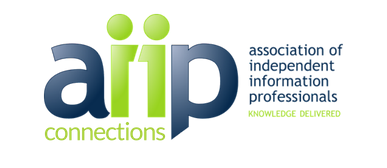Generative AI: A Valuable Ally for Infopreneurs?

I have viewed the emergence of general-purpose generative AI (ChatGPT, Claude, Google Bard, etc.) with both trepidation and curiosity. Ever since the HAL 9000 uttered the immortal response “I’m sorry, Dave. I’m afraid I can’t do that” in the 1968 film 2001: A Space Odyssey, we humans have been leery of the power of artificial intelligence. But I am finding that there are some situations in which generative AI can serve as a useful assistant.
First, a caveat—I would never provide a client with an AI-written answer. Even when I am simply using AI for business correspondence, I always need to edit it so that it sounds, well, human. And I would never trust the accuracy of AI-generated text; I always look at the underlying sources and confirm the algorithm’s interpretation.
That said, here are several ways in which generative AI can be helpful for infopreneurs.
- Getting an overview of a topic. If I am starting a research project in an unfamiliar area, I might pose the question to Google Bard or Bing’s AI chatbot. (If you are using Bard, remember to add “and show your sources” at the end of your query.) I can identify some of the key concepts and trends, the industry buzz words, and some of the resources in which to conduct more in-depth research. Scite Assistant is great for helping explore various aspects of a question, and it includes information on the searches it conducted to come to its answer—a nice brainstorming feature. And if I have identified a voluminous document that is particularly useful, I may use one of the document Q&A tools such as Docalysis or PDF.ai, which let me upload a document and then query it with a chatbot.
- Summarizing documents. When I am reviewing and evaluating the material I have identified with research, I find that a chatbot can summarize a document faster and more effectively than I can scan it. And once I have a collection of useful material, I can use Claude to generate an aggregated summary of the key documents.
- Writing the first draft of business correspondence. Real-life example: I needed to reach out to a potential speaker for a local professional association, and I did not want to spend much time crafting the email. I asked ChatGPT to “write a letter inviting a speaker to present at our local association meeting on the topic of new trends in generative AI.” I got a very serviceable first draft, which I could then customize and send out in less than 15 minutes. (Note that general-purpose chatbots like ChatGPT tend to use somewhat smarmy wording; business letters often begin with the hope that “this letter finds you in excellent health and high spirits.”)
While generative AI has its issues—trustworthiness being foremost—information professionals can take leadership roles in framing the conversation around AI. The more we test and become familiar with a range of generative AI tools, the better we can understand their highest value and biggest risks.
Mary Ellen Bates has been an infopreneur since 1991. In addition to her business analysis services, she offers free strategic coaching to new and long-time solopreneurs. See more at Reluctant-Entrepreneur.com or contact her at mbates@batesinfo.com or +1 303 772 7095.





